#Daimler
Daimler Might Expand Its 'Mobility Services' Through an Unlikely German Ally
Automotive soothsayers have foreseen the coming Armageddon, where private car ownership vanishes and we’re all ferried around in robotic taxis or rental vehicles, and manufacturers have taken their divinations to heart. Either that, or the opportunity to diversity already successful companies is too tempting a prospect to pass up. As such, we’ve seen “mobility” become the new industry buzzword — used as a fill-in for electric vehicles, autonomous development, and ride-sharing/hailing programs.
Hoping to expand its own mobility services, Daimler has announced an openness to seek broader alliances just days after BMW Group bought out its rental car partner, Sixt, from their joint car-sharing program DriveNow. That sets the stage for a peculiar partnership, as the two German automakers have a long, competitive history with each other — one which sometimes results in passive-aggressive behavior.
German Automakers 'Rearrange' Staff After Newest Diesel-related Scandal, Audi Employees See Homes Raided
Daimler AG and BMW group suspended or moved several employees linked to a group that was commissioned for research that involved exposing monkeys and humans to potentially harmful gases. While the nature of these tests may not be extraordinary or illegal, the public response has been one of outrage.
Volkswagen suspended chief lobbyist Thomas Steg earlier this week for similar reasons, but the other automakers have now followed suit in the hopes of quelling public anger. The automakers haven’t kept silent on the matter, either. High-ranking executives have called the research repugnant, suggesting that the ethics employed by the European Research Group on Environment and Health in the Transport Sector (EUGT) were unacceptable.
Germany and Italy Oppose Stiffer European Car Approval Rules
Italy and Germany are opposing attempts to give the European Union more authority over the way national car regulators approve new cars for sale. As wild as it is to learn that Germany is standing in the way of stricter automotive regulation and oversight, allow us to assure you that you’ve not misread the above statement. For some reason, Deutschland doesn’t want to see enhanced industry surveillance.
Our best guess is that the opposition has something to do with Volkswagen Group’s diesel crisis, recent concerns that BMW may have utilized a “shut off” device that masked NOx emissions, and the ongoing investigation into a German automotive cartel that may have operated for decades. But there’s also a chance these automakers simply don’t want to deal with the red tape that comes along with piling on government oversight.
BMW Raided in German Cartel Investigation, Daimler Seeks Immunity
Back in July, German authorities became concerned that the country’s manufacturers had been operating one of the largest automotive cartels in history. With many auto executives still under the microscope for diesel emission manipulation, combined with inter-familial strife between the Piech and Porsche clans, Germany’s auto industry was starting to resemble a PG version of the film Goodfellas — with a dash of Dallas, for flavor.
Despite some rather serious accusations, nothing really came of the cartel investigation. We were beginning to wonder if it was much ado about nothing. But Germany’s antitrust officials hadn’t forgotten — they were simply biding their time during preliminary investigations into corporate collusion and price-fixing. Earlier this week, they made their big move and raided BMW’s headquarters.
With Mercedes-Benz Going Electrified, How Does the Company Avoid Tanking?
Everyone’s doing it. It’s as popular as the fidget spinner and Pokémon Go crazes all those years months ago. In a rush to signal their environmental bonafides and display their dedication to the Next Big Thing, luxury automakers are tripping over themselves in an effort to promise an all-electrified model lineup as soon as technology and finances allow.
This time, it’s Mercedes-Benz. The world’s oldest car brand doesn’t want its rivals cashing in once governments around the globe start turning off the fossil fuel taps. So, earlier this week, Daimler CEO Dieter Zetsche stepped up and made a promise we’ve heard ad nauseum as of late: every model in the brand’s lineup will soon sport some form of electric propulsion, be it a hybrid setup or full-on battery electric powertrain.
For Mercedes-Benz, this means 50 hybrid or EV models, including at its irrelevant-to-Americans Smart brand. The move isn’t without a steep cost, however — Daimler is bracing for a slashing of vehicle profit margins. In some cases, the green collected from green cars could be half that of a gasoline Benz. What to do?
U-turn on the Autobahn: Merkel Sees Germany Putting the Boots to Internal Combustion
After a lot of back and forth on citywide diesel bans and loads of corporate scandal, the German automotive industry has taken a public beating. However, with a few politicians still left in its corner, it’s managed to avoid some of Europe’s anti-combustion wrath. Proposed diesel bans haven’t yet come into effect, but there remains a strong contingent to force change with Chancellor Angela Merkel suddenly taking a greener stance as an election looms.
There’s no shortage of controversy surrounding Europe’s automotive industry, and much of it surrounds environmental issues. The public solution is to move away from fossil fuels and promote electric vehicles through regulatory action within the next few decades — an idea Merkel now openly supports.
“I don’t want to name an exact year,” she said in a recent interview with SUPERillu. But she also believes Britain and France’s plans to phase out internal-combustion cars by 2040 is “the right approach.”
Smart's Dealerships Are About to Become More Exclusive Than Ferrari's
Daimler announced in February that it would stop sending gasoline-powered models to North America this summer and move exclusively to EVs after inventory levels decline. Dealers had until the end of June to decide if they wanted to be a part of the next wave of personal mobility.
With Smart swapping to electric-only drivetrains for U.S. retailers, we assumed the majority of Mercedes-Benz dealers still clinging onto the microscopic Fortwo would abandon it — as would every standalone Smart store still in existence.
Smart only sold 54 electric models within the United States between January and May, so it’s understandable that this summer saw over two-thirds of all retailers opting out of the deal. That leaves Smart with only 27 sanctioned stores within the United States, making it more exclusive than Lotus, Ferrari, Lamborghini, and even Rolls-Royce.
Volkswagen to Conduct 'Crisis Meeting' Over EU Cartel Allegations, BMW Plays It Cool
Volkswagen will hold an emergency supervisory board meeting on Wednesday to discuss recent allegations that Germany’s automakers have been operating as an automotive cartel since the 1990s. Meanwhile, Daimler’s workers council is demanding answers from management as the automaker reels from a one-two-punch of collusion and emissions cheating accusations.
“I advise the car industry to clear the air now, to say what has happened, and then we can look to the future together again,” parliamentary group leader Volker Kauder, said Monday on German television. “If the antitrust violations prove true, and there’s a lot to suggest that, then one must really say the clear sentence: the rule of law also applies to the car industry.”
However, claiming there is sufficient proof to prosecute is a little premature. With the exception of a somewhat damning letter intercepted from VW, no hard evidence of collusion has been made public. Investigators are still in the early stages of the antitrust probe and have given few details as to its progress.
Daimler Summoned by German Government Amid Emissions Cheating Probe
After a pair of Mercedes-Benz engines garnered increased scrutiny from regulatory agencies, the German government has summoned executives from Daimler to account for its activities as a new diesel emissions probe picks up steam.
The automaker has confirmed several of its representatives are attending a hearing on Thursday afternoon to speak with the German Transport Ministry — just one day after news broke that Stuttgart investigators believed some diesel-powered Mercedes vehicles may have been equipped with defeat devices between 2008 and 2016.
The investigation centers around the OM642 V6 and OM651 inline-four turbo-diesels, both of which are under suspicion of being equipped with illegal technology used to circumvent emissions testing. Interesting, Mercedes gave up on certifying diesel-driven vehicles in the United States this year after four models Benz had hoped to sell failed to obtain regulatory approval.
Daimler, BAIC Investing $735 Million Into Chinese EV Production Pretty Much Out of Necessity
Daimler AG is dumping half of a 5 billion yuan sum, or 735 million dollars, into China as part of a joint venture with BAIC Motor Corp. Together, the companies plan to establish the groundwork for competent EV production in the region — meaning a good ol’ fashioned battery factory.
The bill is split between the two firms, as China requires every foreign automaker to partner with a domestic one to do business within the country. The new factory will be a product of Beijing Benz Automotive, a blandly named limited liability company created to further Mercedes’ interest within the country and bolster its EV production capabilities globally.
U.S.-Built Mercedes-Benz Models to Become More American
Call it the Americanization of Mercedes-Benz. While the German automaker has assembled C-Class, GLE and GLS models in Alabama for some time (and, more recently, Sprinters in South Carolina), recent pressure from the Trump administration has led the automaker to reconsider what goes into those vehicles.
After being characterized by President Trump as “very bad,” it’s possible other German automakers operating in the U.S. could follow Mercedes’ lead in a bid to avoid further heat.
No Mercedes-Benz Diesels for 2017, or Maybe Ever
Fans of German compression-ignition engines had best dig out those old, glossy posters of an olive green 300D, as they’re going to need it.
Daimler announced it will not sell 2017 diesel Mercedes-Benz models in the U.S. as rumors swirl that the automaker might give up on the segment altogether.
The problem lies in regulatory approval, which Daimler has struggled — and failed — to obtain. Following the Volkswagen diesel scandal, the Environmental Protection Agency and California Air Resources Board began going over diesel emissions with a fine-toothed comb. The four diesels Mercedes-Benz had hoped to sell in the U.S. this year became trapped in a bottleneck last fall.
After killing off the C300d’s prospects for good, the automaker then sought approval for just one model — the GLS350d. No dice. Investigations on both sides of the Atlantic could now cap the company’s 57-year diesel history in the U.S.
Smart Stays the Course in Europe as It Shifts Focus in the United States
You’d probably never guess this from examining any parking lot in suburban North America, but Daimler’s microcar brand is actually doing exceedingly well. Despite the global trend toward crossovers, Smart saw record sales last year and increased its global volume 21 percent to 144,479 units. More amazing is that it’s still a brand that owes the entirety of its success to one niche market.
Smart doesn’t seem interested in changing course, either. While it’s abandoning internal combustion units to pursue a strict EV-only mentality in the United States, it will be business as usual for the the rest of the planet. But, with much of the industry offering spanking new compact crossovers and with fuel prices still so low, wouldn’t it be in Smart’s best interest to look beyond the limited microcar segment?
More Models and Soon: Daimler Promises to Amp-up Its Electric Vehicle Program
After a Wednesday announcement stating it had failed to cut fleet emissions for the first time since 2007, Daimler has promised to expand its electric vehicle program and shorten the timeline. However, the automaker isn’t willing to shoulder all the blame for not being green enough. Consumer trends have shifted strongly toward larger, less efficient crossovers and SUVs in recent years. Daimler knows this better than anyone with global sales of the Mercedes-Benz GLA, GLC, and GLE gradually replacing its more-stagnant sedan deliveries.
Still, Europe has set very specific emissions requirements and the German company has fallen behind. It’s time to make amends by publicly promising new electrified models and a corporate goal closer to the state-sponsored pollution target.
Daimler Truck Boss, Apparently Too Old for a Promotion, Splits From Company
It looks like mustachioed, jeans-loving Daimler CEO Dieter Zetsche will have to look elsewhere for a successor to the company throne.
Wolfgang Bernhard, head of Daimler Trucks & Buses, was thought by many a likely candidate to take on the top job once Dr. Z retires. Announced today, Bernhard is stepping down from his post and leaving the company he joined in 1994, even before his contract expires.
Infighting and age could have a lot to do with it.



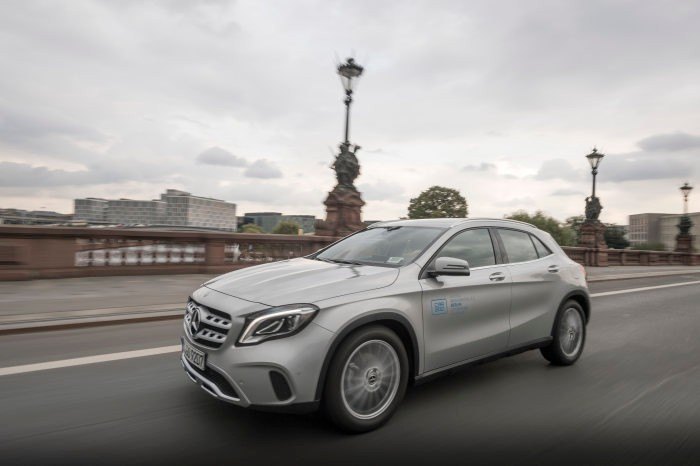

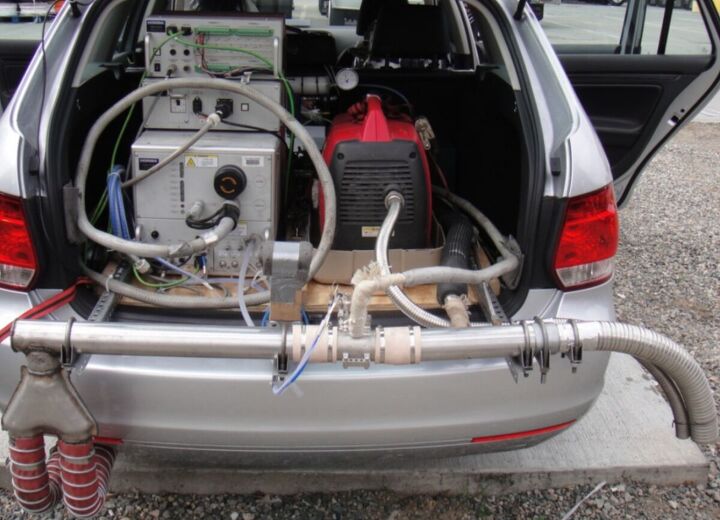
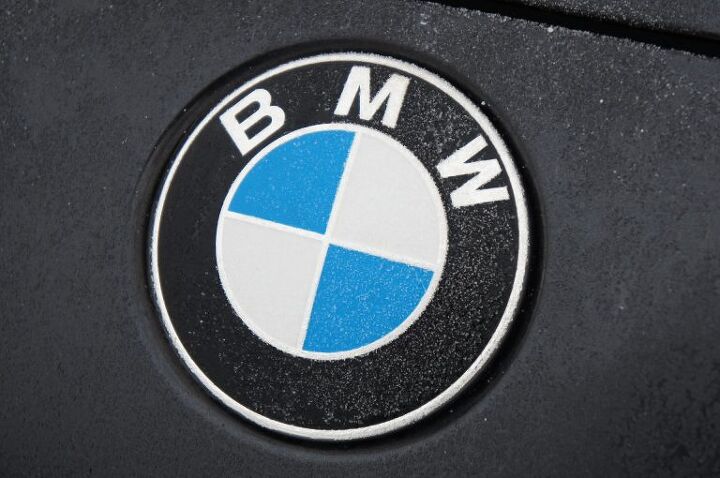



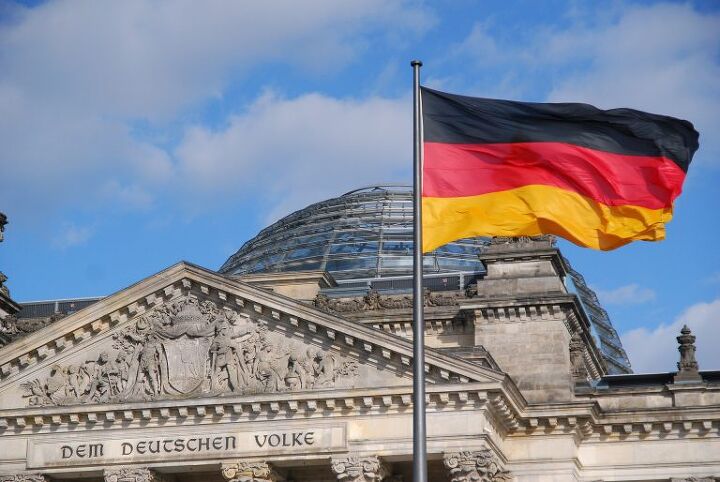


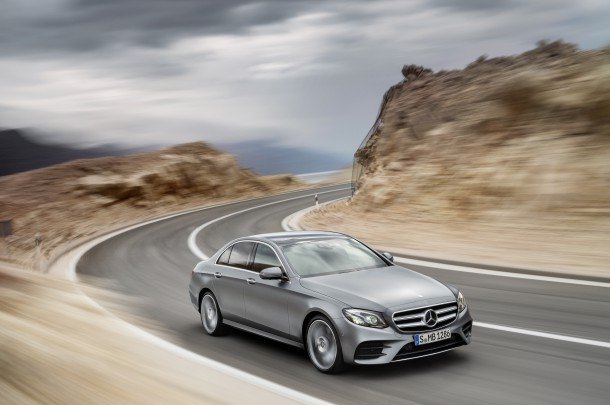















Recent Comments